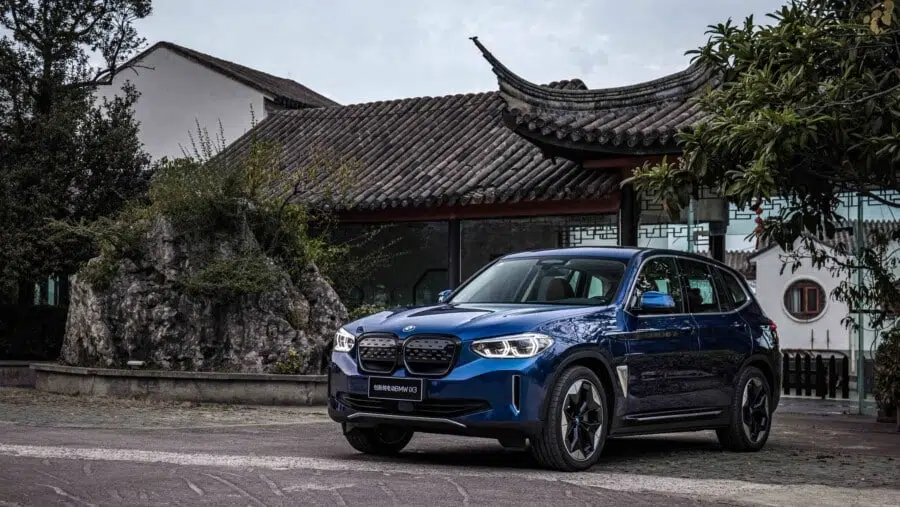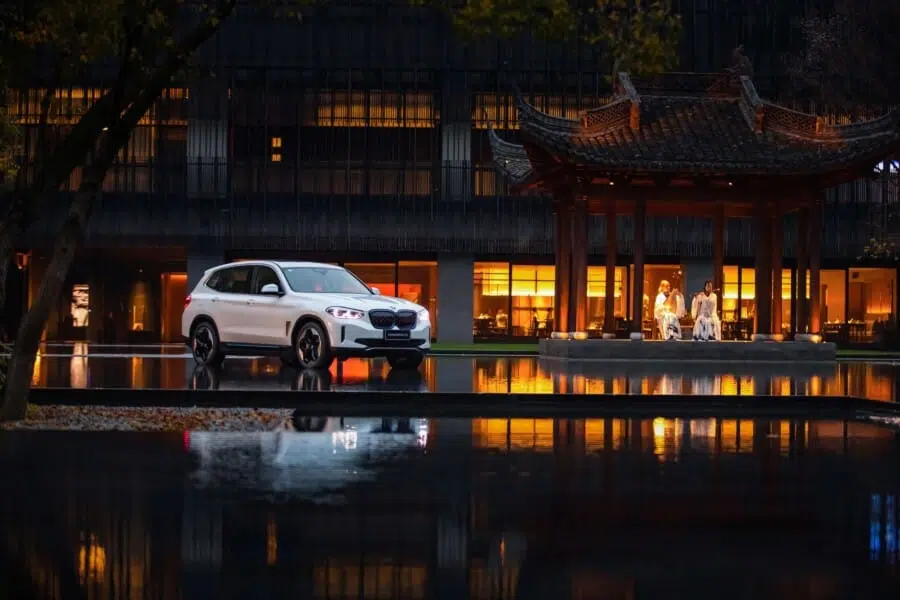The BMW Group is stepping up its commitment to achieving climate neutrality and massively expanding its use of secondary material in closed recycling loops. For the first time in China, the BMW Brilliance Automotive joint venture (BBA) has established a closed loop for reuse of the raw materials nickel, lithium and cobalt from high-voltage batteries that are no longer suitable for use in electric vehicles. The batteries come from fully and partially-electric development vehicles, test systems and production rejects and, in the future, also from end-of-life vehicles. In this way, the company is laying the foundation for a pioneering material cycle, which is becoming increasingly important as e-mobility ramps up. To realise this, BBA is working with a local recycler that dismantles retired batteries and uses innovative technology to recover a high percentage of the raw materials nickel, lithium and cobalt from the battery cells. The raw materials obtained in this way are then used in production of new battery cells for the BMW Group. The closed-loop material cycle conserves resources and, at the same time, reduces CO2 emissions by 70%, compared to using newly extracted primary material.
Jochen Goller, head of BMW Group Region China: “In light of the growing scarcity of finite resources and rising commodity prices, it is especially important to push forward with the circular economy, increase the percentage of reusable materials and reduce our dependence on raw materials. The BMW Group will expand its recycling concept in China in the future – which will not only contribute to environmental protection, but also effectively support China’s transition to a low-CO2 economy.”
China is the world’s largest market for electric vehicles. With the rapid development of this market since 2015, the automotive battery recycling industry has also experienced fast growth. The China Automotive Technology and Research Centre expects the total volume of retired batteries in China to reach around 780,000 tonnes by 2025. At the same time, prices for domestic raw materials for high-voltage batteries have increased sharply since last year.
Despite the challenging environment, the BMW Group was able to triple its sales of fully-electric vehicles in China in the first quarter of this year alone. Alongside the BMW iX and BMW i4 models, the BMW iX3 also contributed to this increase. Since April, an all-electric version of the BMW 3 Series offered exclusively in China has strengthened the portfolio, followed by the new BMW i7 in the second half of this year.

Seamless traceability of batteries enables second use and recycling
China’s current policies require a high-voltage battery tracing system to be established to ensure batteries can be tracked and recycled once retired. The BMW Group has developed a system for this, with coding that enables seamless traceability of batteries throughout their lifecycle. The coding ensures batteries from the entire value chain, from initial test vehicles to vehicles already in the market, can be professionally recycled.
Once returned, the batteries are evaluated for potential continued use. The BMW Group began using end-of-life batteries with a high residual capacity in forklift trucks at BBA plants in China back in 2020. The plan is for these “second-life applications” for batteries to be expanded, going forward, to include pallet lifting trucks and stationary energy storage units with charging capabilities.
If end-of-life batteries do not meet the criteria for second use, they are recycled. The nickel, lithium and cobalt raw materials obtained in this way are channelled into production of new battery cells for the BMW Group. A battery with a capacity of 100 kWh contains, on average, almost 90 kg of nickel, lithium and cobalt; with nickel accounting for most of this amount.
Batteries that are not disposed of properly impact the environment and waste valuable raw material resources that could be used further. For this reason, the BMW Group operates according to the four principles of “Re:think, Re:duce, Re:use and Re:cycle”, together with its suppliers, to maximise the recycling rate for battery raw materials and to use all resources responsibly.
The BMW Group will expand its recycling concept in China in the future – which will not only contribute to environmental protection, but also effectively support China’s transition to a low-CO2 economyJochen Goller, Head of BMW Group China
Circular economy as key element of the “Race to Zero” initiative
The BMW Group became the first German automotive manufacturer to join the Business Ambition for 1.5° C campaign launched by the Science-Based Targets Initiative and is committed to the goal of complete climate neutrality throughout the entire value chain by 2050 at the latest. The company is thus also participating in the international “Race to Zero” initiative.
However, having a higher percentage of electric vehicles on the roads is not the only way to achieve climate-friendly mobility. It is also vital that we minimise the use of primary material and the environmentally-harmful effects of extraction and processing of raw materials this entails, which is often energy and CO2-intensive.
Specifically, with a growing percentage of battery-electric vehicles, the need for numerous raw materials, including cobalt, nickel, lithium and aluminium for the vehicles’ high-voltage batteries, will increase. At the same time, this also offers tremendous potential for reusing these materials in the circular economy. Already today, the BMW Group uses secondary nickel in the high-voltage batteries of the BMW iX.
Ambitious e-mobility roadmap
The BMW Group is accelerating its expansion of electromobility and plans to deliver at least 10% fully-electric vehicles already this year. By 2030, at the latest, at least half our global sales should come from fully–electric vehicles. The MINI and Rolls-Royce brands will be all-electric from the early 2030s.



